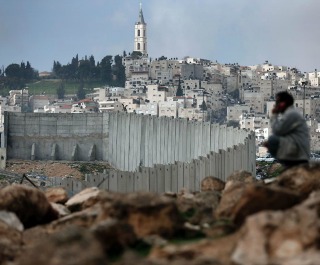Last week, Jewish Federations of North American (JFNA), an organization representing federations across the United States, opened the door, as a matter of formal policy, to taking Americans to visit Israeli settlements. These are the areas located east of the 1949 Armistice line separating Israel and the occupied territories (aka “the Green Line”) in which Israel has been actively settling its citizens since 1967. This decision, upending longstanding JFNA policy, doesn’t come in a vacuum. Rather, it comes in the context of a campaign to legitimize settlements in the eyes of American law and in the minds of American Jews – contrary to consistent U.S. law and policy since 1967 rejecting the legitimacy of both settlements and the occupation, and contrary to the vital interests of Israel.
Make no mistake: Settlements are the bricks-and-mortar expression of an ideology that prioritizes land over peace, and values the expansion of Israel’s borders over Israel’s democracy, over its security, and over good relations with the world. Generations of Israeli generals and security experts have concluded that a peace agreement with the Palestinians is vital to Israel’s security, and that such an agreement will have to be based on the Green Line, with limited border modifications agreed to by both sides. Continued Israeli settlement expansion and obfuscation of the Green Line threaten the achievement of such an agreement and undermine Israel’s security.
 Naomi Tamura is done with empty promises and ready for tangible change
Naomi Tamura is done with empty promises and ready for tangible change
 With the election of Donald Trump as the next president of the United States, speculation is
running high in regard to Washington’s policy on Israeli settlement construction and the future of the Middle
East peace process.
With the election of Donald Trump as the next president of the United States, speculation is
running high in regard to Washington’s policy on Israeli settlement construction and the future of the Middle
East peace process.